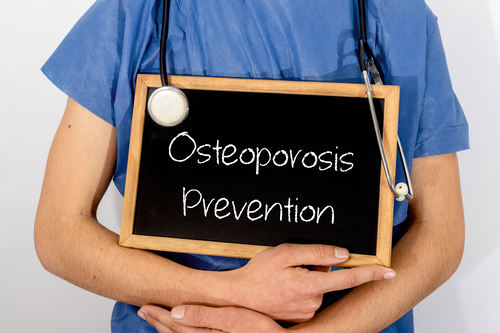Why Physical Therapy After a Car Accident is Essential: Benefits, Treatments, and Timely Recovery
A car accident can be a life-changing event, and people often suffer multiple injuries that affect their daily lives. While immediate medical attention is crucial, many people overlook the importance of ongoing care such as Atlanta physical therapy in the recovery process. Physical therapy after a car accident is key in helping crash victims get mobile, manage pain, and prevent long-term complications. Our experienced physical therapists at Georgia Spine and Orthopaedics provide comprehensive Atlanta physical therapy services to help you get back on track.
In this post, we will discuss the benefits of physical therapy after a car accident, what it can treat, and why you should start as soon as possible.
The Role of Physical Therapy After a Car Accident in Recovery and Long-Term Health
Physical therapy after a car accident is important and plays a big role in the recovery process by addressing immediate injuries and long-term complications.
In addition to treating physical injuries, physical therapy supports the body’s natural healing process by improving circulation, reducing inflammation, and restoring function. It also provides a structured recovery plan that adapts to the patient’s progress, ensuring that treatment evolves with their healing. This comprehensive approach helps patients regain strength, mobility, and independence more efficiently than rest or medication alone.
Immediate Medical Care and Physical Therapy
After a car accident, immediate medical attention is key. While initial assessments focus on acute injuries, it’s equally important to think about the long-term consequences of those injuries. Physical therapy is key in the recovery process by addressing immediate pain and potential long-term complications. Starting physical therapy early can make a big difference in recovery outcomes, get you functioning, and reduce the risk of chronic pain.
Prompt physical therapy also helps limit the formation of scar tissue, which can cause stiffness and restrict range of motion if not properly managed. Early intervention ensures the body heals correctly and that damaged areas regain full function. Patients who begin therapy shortly after a crash often experience fewer complications and a faster return to normal activity compared to those who delay treatment.
Car Accident Injuries and How They Affect Daily Life
Car accidents can cause many types of injuries from whiplash to fractures and soft tissue damage. These injuries affect mobility and can make even everyday activities difficult. If left untreated, these injuries can get worse over time and decrease quality of life. Physical therapy targets these specific issues to restore normal movement patterns and relieve pain.
Beyond physical limitations, these injuries often affect work, sleep, and emotional well-being. Chronic discomfort can lead to frustration, fatigue, and stress, all of which interfere with healing. Physical therapy not only helps restore physical function but also empowers individuals with the tools and confidence they need to return to their routines and rebuild their quality of life.
Managing Chronic Pain and Preventing Secondary Injuries
Chronic pain is a common result of car accidents, often from untreated or poorly managed injuries. Physical therapy after a car accident not only reduces pain but also prevents secondary injuries from compensatory movements or untreated areas of weakness. By creating a customized treatment plan, physical therapists help patients manage pain effectively while the body heals and reduces the risk of future complications.
Physical therapy also helps break the cycle of pain by improving posture, joint alignment, and muscle balance—factors that are often disrupted after trauma. Therapeutic exercises, manual therapy, and modalities like heat, ice, or electrical stimulation can reduce inflammation and promote tissue repair. These strategies offer long-term relief without the need for ongoing medication use, supporting a more sustainable recovery.
Physical Therapy Benefits
Physical therapy is a holistic recovery approach, addressing immediate and long-term needs after an injury to overall health and wellness.
Pain Management Techniques
Physical therapy has many techniques to manage pain. Through modalities like heat and cold therapy, ultrasound, and specific exercises physical therapists address the underlying cause of pain, not just masking it with medication. This approach not only relieves discomfort but also promotes long-term healing by treating the source of the problem.
Mobility and Range of Motion
Injuries from a car accident can limit a person’s ability to move freely. Physical therapy after a car accident restores mobility and range of motion in affected areas. Through specific exercises and manual therapy, patients can get back to daily activities and get back to normal life with minimal restrictions.
Preventing Further Complications and Long Term Damage
If left untreated injuries can lead to further complications including chronic joint pain and long-term damage. Physical therapy prevents these outcomes by strengthening the body, increasing flexibility, and correcting movement patterns. By addressing issues early physical therapists help patients avoid secondary injuries and reduce the risk of ongoing problems.
Strength and Overall Function
Physical therapy not only focuses on recovery but also on overall strength and function. Through strength training and conditioning exercises patients build up their muscles and joints and make themselves less prone to future injuries. This holistic approach gets patients back to their physical capabilities and keeps them there.
Healing and Pain-Free Living
The goal of physical therapy after a car accident is to heal and get patients pain-free. By addressing both the immediate and long-term effects of injuries physical therapy gets patients to full recovery. Patients are given the tools and knowledge to manage their condition effectively and live sustainably and well.
Quality of Life
The ultimate benefit of physical therapy is to improve a patient’s quality of life. By restoring function, reducing pain, and preventing future injuries physical therapy enables patients to live more active and fulfilling lives. This holistic approach not only improves physical health but also emotional and mental well-being so patients can get back to daily activities and live life to the fullest.
Injuries We Treat in Atlanta, GA
Physical therapy after a car accident treats many types of injuries from car accidents and provides specific treatment to get you back to recovery and prevent long-term complications.
Soft Tissue Injuries: Sprains and Strains
Soft tissue injuries including sprains and strains are common after car accidents. These injuries involve damage to muscles, ligaments, and tendons and result in pain, swelling, and limited mobility. Physical therapy reduces inflammation, increases flexibility, and strengthens the affected areas. By addressing these injuries early therapists help patients recover faster and prevent chronic pain or re-injury.
Broken Bones and Fractures
Car accidents often result in broken bones or fractures which can severely limit a person’s function. Physical therapy plays a big role in the recovery process by helping patients get strength and mobility back after the bone has healed. Through specific exercises and careful monitoring, therapists ensure the affected area gets back to full function and minimal long-term limitations.
Whiplash and Other Neck Injuries
Whiplash is one of the most common injuries from car accidents, caused by the sudden jerking motion of the head and neck. This can result in pain, stiffness, and limited range of motion. Physical therapy for whiplash relieves pain, strengthens the neck, and increases flexibility. Early intervention is key to preventing chronic neck problems and full recovery.
Spinal Cord and Back Injuries
Spinal cord and back injuries are serious and can have long-term effects on a person’s mobility and quality of life. Physical therapy is key in managing these injuries by providing specific treatment to relieve pain, improve spinal alignment, and strengthen the surrounding muscles. A comprehensive physical therapy program can prevent further complications and support long-term spinal health.
Chest Injuries and Blunt Force Trauma
Chest injuries including blunt force trauma can result in significant discomfort and difficulty in breathing or movement. Physical therapy helps manage these injuries by improving chest mobility, reducing pain, and proper breathing techniques. This approach not only helps in recovery but also prevents complications like pneumonia or chronic chest pain.
Knee, Shoulder, and Other Joint Injuries
Joint injuries particularly to the knees and shoulders are common in car accidents and can severely limit a person’s movement and daily activities. Physical therapy addresses these injuries through specific exercises that improve joint stability, strength, and flexibility. By addressing the specific needs of each joint therapists help patients recover fully and prevent future joint problems.
Timing and Duration
Timing and duration of physical therapy a critical factors in getting well after a car accident, early intervention and specific programs are key to the healing process.
When to Start Physical Therapy After a Car Accident
Timing is everything when it comes to physical therapy after a car accident. It’s generally recommended to start physical therapy as soon as possible after a healthcare provider has cleared you to do so. Early intervention can prevent chronic pain, stiffness, and mobility problems. Starting therapy early addresses inflammation, gets you moving and starts the healing process, setting the stage for faster and better recovery.
Length of Physical Therapy Program
The duration of physical therapy depends on the severity of the injuries and the patient’s response to treatment. Most programs last from several weeks to a few months, with sessions usually 2-3 times a week. The frequency and length of the program are specific to the patient’s needs and progress. In some cases, it may be longer if the injuries are severe or if the patient has complications during recovery.
Factors that Affect Recovery and Therapy Needs
Several factors will determine how long a patient will need physical therapy. The nature and severity of the injuries, the patient’s age, overall health, and physical fitness all play a role. The patient’s compliance with the therapy program including doing exercises at home can greatly impact recovery time. Regular communication with the physical therapist ensures that the treatment plan is adjusted as needed based on the patient’s progress and any emerging problems.
Schedule an Appointment for Physical Therapy After a Car Accident!
If you’ve been in a car accident and are dealing with pain or mobility issues, don’t wait to seek the care you need. The expert team at Georgia Spine & Orthopaedics is here to help you on your road to recovery. With personalized treatment plans tailored to your specific injuries, our physical therapists are dedicated to restoring your health and improving your quality of life.
Schedule an appointment with us ASAP at 678-929-4494






